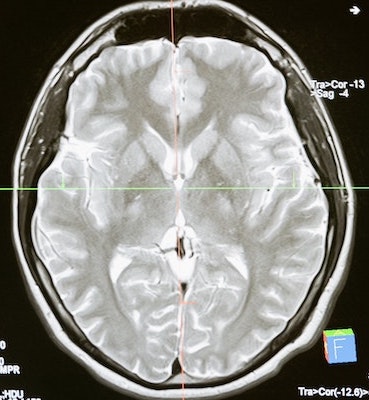Chanting is now gaining recognition in the scientific community for its profound impact on the brain.
This article embarks on a quest to uncover the myriad ways chanting influences our cognitive and emotional landscape, backed by tangible scientific evidence. Whether you’re a skeptic, a spiritual enthusiast, or someone merely curious about brain health, this exploration promises to offer insights and revelations. So, let’s dive deep into the harmonious world of chanting and its remarkable benefits for the brain.

Table of Contents
What is Chanting?
Chanting is a practice that has been used for centuries in various cultures and spiritual traditions. It involves the repetition of sounds, words, or phrases, often accompanied by rhythmic breathing or movement. Chanting can be done alone or in a group, and can be done in a variety of settings, such as in a temple, church, or even in the privacy of your own home.
The effects of chanting on the brain
Scientific research has shown that chanting can have a significant impact on the brain. A study conducted by researchers at the University of California, Los Angeles (UCLA) found that chanting helped to activate certain areas of the brain, including the prefrontal cortex, which is responsible for decision-making and attention. Another study found that chanting helped to increase the production of alpha waves in the brain, which are associated with relaxation and reduced stress levels.
Neural Pathways: The Building Blocks of Memory
Each time we chant, our brain is hard at work. The repetition involved in chanting helps stimulate neural pathways, which play a critical role in memory retention and recall. Regular practice can reinforce these pathways, enhancing our memory and cognitive abilities. A study from the National Institute of Health supports this, revealing that repetitive oral activities like chanting can bolster neural circuitry in the brain.
Chanting and Brainwave Activity
Brainwave activity provides a window into the state of our mind. While in a relaxed state or deep meditation, our brain produces alpha brainwaves. Engaging in chanting has been found to stimulate the production of these alpha waves, leading to deep relaxation and heightened awareness. Dr. Andrew Newberg from Thomas Jefferson University conducted an intriguing study on this phenomenon. Using brain imaging, he observed increased alpha brainwave activity in participants while they chanted or meditated, indicating a relaxed yet alert state of mind. Details of his study can be found on the Thomas Jefferson University website.
The Influence on the Limbic System
The limbic system, often termed the “emotional brain,” is responsible for our feelings, motivation, and long-term memory. Chanting, with its rhythmic tones and vibrations, can influence this system, fostering a sense of well-being and reducing anxiety. A 2010 study published in the Journal of Biological Psychology highlighted that chanting and similar auditory rhythmic stimuli could dampen the activity in limbic areas, reducing stress and negative emotions.
Chanting Benefits for the Brain
Now that we’ve delved into the science behind chanting, let’s explore its tangible benefits for our cognitive functions and emotional health.
Boosting Memory and Concentration
Chanting, due to its repetitive nature, demands focus. Engaging in regular chanting sessions can improve our attention span and boost memory. Just like how a muscle strengthens with exercise, our brain’s memory centers, particularly the hippocampus, become more robust with this practice.
Reducing Stress and Anxiety
One of the immediate benefits felt by chanters, newbies or seasoned, is the sense of calm. Chanting allows us to disconnect from the whirlwind of thoughts, grounding us in the present moment. This mindfulness practice can drastically reduce cortisol, a stress hormone, paving the way for a relaxed state of mind.
Scientific Evidence Supporting Chanting
Chanting is not just a spiritual or cultural ritual. In recent years, science has delved into its effects, revealing its profound impact on the brain. Let’s explore some pivotal studies that throw light on these findings.
Neuroplasticity and Its Role
Neuroplasticity refers to the brain’s ability to change and adapt over time. Chanting, with its repetitive and rhythmic nature, can induce positive neuroplastic changes, enhancing cognitive functions. Dr. Sarah Lazar, a researcher at Harvard Medical School, conducted a study that highlighted how meditation and related practices, including chanting, can increase the thickness of certain brain regions related to attention and sensory processing. More about her research can be found at Harvard Gazette.
Case Studies on Chanting and Brain Health
Dr. Alan Watkins, a neuroscientist and researcher, performed a series of studies involving heart rate variability and coherence while individuals engaged in chanting. His findings suggested that consistent chanting could synchronize the heart and brain, promoting emotional stability and heightened cognitive function. Details of his research are available at HeartMath Institute.
MRI Scans: Visual Proof of Brain Changes
Functional Magnetic Resonance Imaging (fMRI) offers visual insights into the brain’s activity. A groundbreaking study conducted by the University of Pennsylvania utilized fMRI scans to observe brain changes in individuals engaged in Sanskrit chanting. The results were astonishing, revealing a heightened activation in the regions responsible for attention and concentration. This research, showcasing the tangible impact of chanting on brain activity, can be found on the University of Pennsylvania’s official site.
Oxytocin and Chanting: The Connection
Oxytocin, often termed the “love hormone” or “social bonding hormone,” is known to foster feelings of trust, love, and social bonding. A study by the University of Tokyo found elevated levels of oxytocin in individuals after participating in group chanting sessions. This might explain the profound feelings of connection and unity often reported by people who engage in group chanting. To delve deeper into this study, visit the University of Tokyo’s research page.
The mental and emotional benefits of chanting
Chanting can also have a significant impact on mental and emotional wellbeing. One study found that chanting helped to reduce symptoms of depression and anxiety in individuals with mental health disorders. Another study found that chanting helped to improve overall mood and emotional wellbeing in healthy individuals.
Conclusion
Chanting is an ancient practice that has numerous benefits for the brain and overall well-being. From reducing stress and anxiety to improving focus and memory, chanting can be a powerful tool for enhancing mental health. By incorporating chanting into your daily routine, you can experience the benefits of this practice for yourself.
- Reduces Stress and Anxiety
- Chanting has been shown to reduce levels of the stress hormone cortisol, which is associated with feelings of stress and anxiety. By reducing cortisol levels, chanting can help to promote feelings of relaxation and calmness.
- Improves Focus and Concentration
- Chanting involves the repetition of sounds or words, which can help to improve focus and concentration. By focusing on the sound of the chant, you can train your brain to tune out distractions and stay focused on the present moment.
- Enhances Memory
- Research has shown that chanting can improve memory and cognitive function. This may be due to the fact that chanting involves the repetition of sounds or words, which can help to strengthen neural connections in the brain.
- Boosts Mood
- Chanting has been shown to increase levels of dopamine and serotonin, which are neurotransmitters that are associated with feelings of happiness and well-being. By boosting these neurotransmitters, chanting can help to improve mood and overall well-being.
FAQ
How long does it take to experience benefits of chanting on the brain?
The benefits of chanting can vary from person to person, but some people report feeling more relaxed and focused after just a few minutes of chanting. To experience the full benefits, it’s recommended to practice chanting regularly over a period of time.
See Related Posts

Gregorian Christmas Chants

Love Spell Chants

Best Softball Chants for U12

AKA Sorority Chants

Argentina Football Chants

Short Chants and Cheers

Alabama Football Chants

Everything to Know About African Chants

